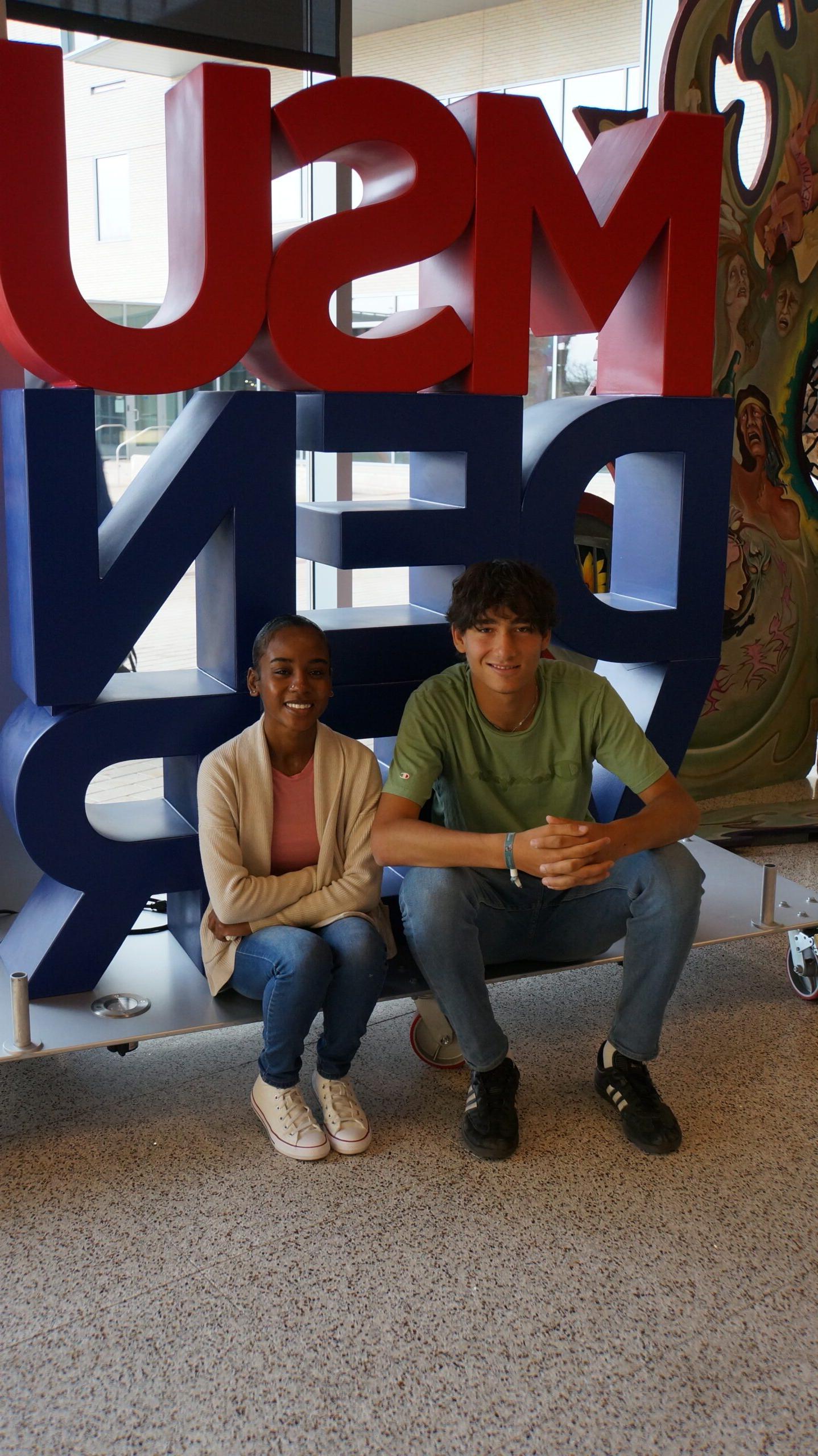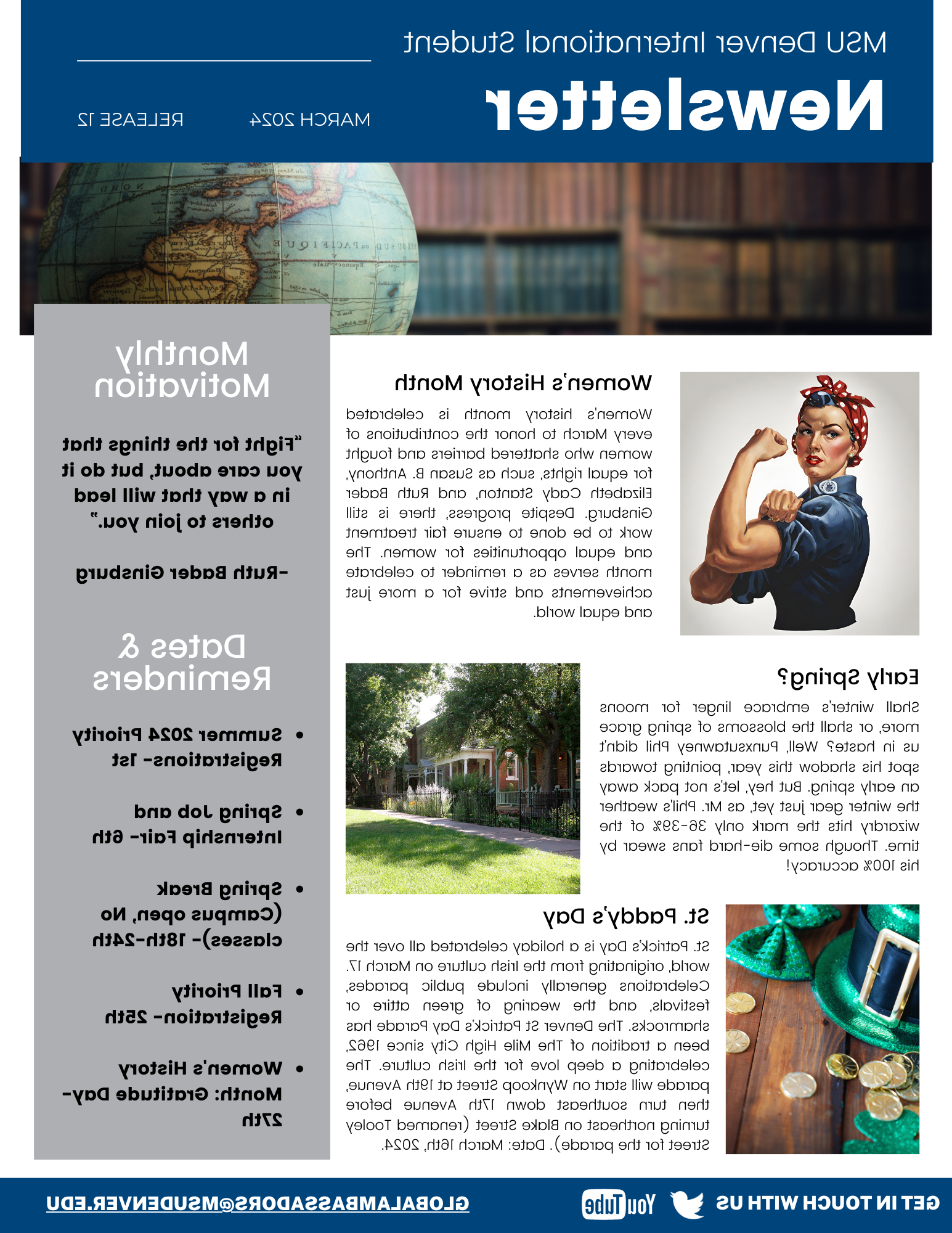Request Information
Ready to find out what MSU Denver can do for you? We’ve got you covered.

Brizan (Right): I am currently a Junior here at MSU and my major is
Nutrition and Dietetics with a minor in Pre-healthcare. I am
from the beautiful country of Jamaica. My favorite thing about
Colorado is all the unique scenery and the amazing hiking
trails!
Alejandro (Left): Hi Roadrunners, I am a Finance major here at
MSU finishing my sophomore year of college. I am from
Madrid, Spain and one of my favorite things about Colorado
is its many professional sports teams, including Basketball,
Hockey, Football and Soccer among others.
March 2024
Hello INTL Community,
What are Americanisms?
An Americanism is a word or phrase that is used primarily by Americans or thought to originate in the United States.
As an international student studying in the United States, you may encounter some “Americanisms” that are unfamiliar to you. These are words or phrases that are commonly used in American English but may have different meanings or not be used at all in other English-speaking countries. Some examples of Americanisms include “restroom” instead of “toilet,” “elevator” instead of “lift,” “sidewalk” instead of “pavement,” and “truck” instead of “lorry.”
AAVE/Ebonics
African American Vernacular English (AAVE), also known as Ebonics, is a dialect that has its roots in the African American community. It is a vibrant and expressive form of English that has its own unique grammar, vocabulary, and pronunciation. Some common features of AAVE include the use of double negatives for emphasis, dropping the “to be” verb in certain contexts, and the use of terms like “finna” for “going to” and “lit” for “exciting” or “cool”.
Ebonics has a rich history and is an important part of African American culture. It is not a lesser form of English but a legitimate dialect with its own rules and structure. Understanding and appreciating AAVE and Ebonics can lead to greater cultural awareness and appreciation for linguistic diversity.
Conclusion
Additionally, you may notice that Americans have different cultural norms and customs than what you are used to. For example, tipping is common in the United States, and it’s expected to tip at restaurants, hair salons, and other service-based businesses. It’s also common to address people you don’t know by their first name, even if they are older or in a position of authority.
Overall, embracing these differences can be a great way to learn about American culture and make the most of your time studying abroad. By keeping an open mind and being willing to adapt, you’ll be able to navigate American society with ease and enjoy all that the United States has to offer.
February 2024 January 2024 December 2023 November 2023 October 2023 September 2023 August 2023 July 2023 June 2023


Previous Monthly Newsletters